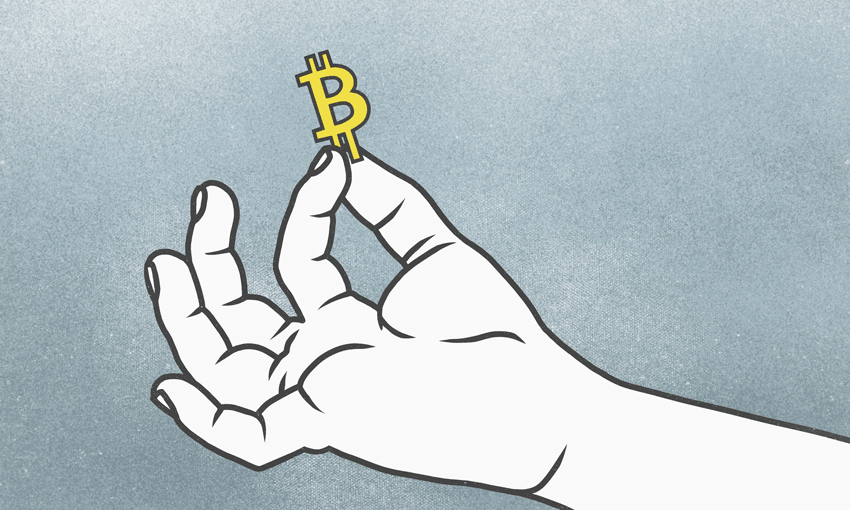It’s been touted as the best performing asset of 2020, so what’s been driving Bitcoin’s recent success amid a global pandemic? Janine Grainger from Easy Crypto has a few ideas.
The fact that Bitcoin has survived the stress-test of Covid-19 has been indisputable. Not only did it recover much quicker when compared to the other asset classes, such as the US stock markets and gold prices, but it’s also been the best performing asset class year-to-date. Perhaps it’s due to this resilience that we’re seeing not only increased attention given to this asset class but also a phenomenal growth in institutional adoption. Recent institutional investors include ARK investments, which is well known for its strategy in investing in disruptive innovations, and Square, which has committed 1% of its total assets (US$50 million) into Bitcoin. So why hasn’t Bitcoin followed the trajectory of other assets despite the chaos brought by Covid-19?
In 2007, just before the GFC, The Economist wrote: “Institutional investors have been looking for ‘uncorrelated’ assets ever since the equity bear market of 2000–2002. They realised that they made too big a bet on the stock market and wanted to diversify. But neither government bonds nor cash offered the level of returns they desired.”
Perhaps it’s this desire to look for “uncorrelated” assets that led to a growing number of savvy investors to include Bitcoin in their investment portfolio. An uncorrelated asset moves independently of major stock market indices, and investors typically look to such an asset as a hedge to reduce the risk of their overall investment portfolio.
Within the cryptoverse and now the wider financial markets, there’s a mix of evidence either supporting or refuting the claim of Bitcoin’s association with traditional assets. A recent study observed a positive coupling effect between Bitcoin and the stock markets. This means that during shock-like situations when the stock markets are declining, Bitcoin also sees a fall in value.
When we dived into the price data of Bitcoin and other financial assets in the last 90 days, we also found a similar observation with Bitcoin correlating with most stock markets with the exception of Germany’s DAX. On the other hand, Bitcoin still performs differently to gold with the two assets negatively correlated.
Given that Bitcoin is still a very young asset, it seems logical that it’s affected by what’s going on in major stock markets. After all, the world’s stock markets are valued at US$89.5 trillion dollars while the cryptocurrencies’ market capitalisation was just US$244 billion at the beginning of this year, but has since surged to over US$500 billion by November 2020.
More recently, however, Bitcoin is showing signs of divergence from the rise and fall trajectory of the stock markets’ price actions. During the first week of November, the signs of Bitcoin’s decoupling from the stock markets became more prominent. While major stock market indices fell week on week due to the uncertainties of the US Presidential election, Bitcoin witnessed a new 2020 high. How is this possible?
Increasing demand certainly plays a role. Commentators have pointed to the new adopters of Bitcoin (particularly institutional investors) surging in to purchase the digital asset that prevented its price from dropping.
However, Bitcoin’s supply (or lack of) is also at play here. There will only ever be 21 million Bitcoin. This fixed supply is in stark contrast to central bank-issued money that we are used to, such as the New Zealand dollars. Currently, there are just over 18 million Bitcoins in circulation, with the supply of new “virgin” Bitcoins being released diminishing over time.
In a world where quantitative easing of currency is a common tool for many governments, driving fear of the devaluation of government-issued currencies, Bitcoin’s fixed and tightening supply render it a more appealing alternative. New Zealand, like many other countries, also resorted to quantitative easing, where the reserve bank has pledged $128 billion dollars of stimulus. A recent report by PwC revealed that the number of hedge funds with digital assets, such as Bitcoin, continue to rise. The total assets under management worldwide doubled from 2018 to the end of 2019 to USD 2 billion, and this number is expected to triple by the end of this year, as more investors look to digital assets such as Bitcoin as a hedge. It is likely that New Zealand investors behave in a similar manner.
It is scarcity that led some to know Bitcoin as the “digital gold”. Furthermore, in the decade where Bitcoin’s value went from under a dollar to US$18,000, Gold, although a safe haven, hovered between the US$1,200-$1,700 price in the same period.
Undoubtedly, Bitcoin’s reputation as a possible hedge against inflation or a portfolio diversifier is evident, and more and more people are awakening to Bitcoin’s potential.
Janine Grainger is the co-founder of Easy Crypto and deputy chair of Blockchain New Zealand.


